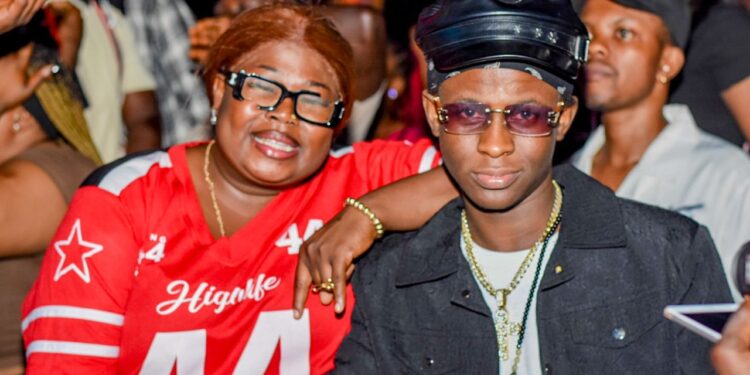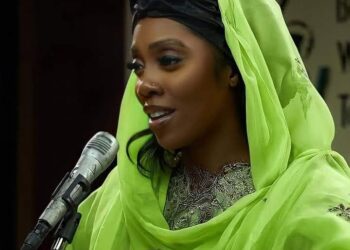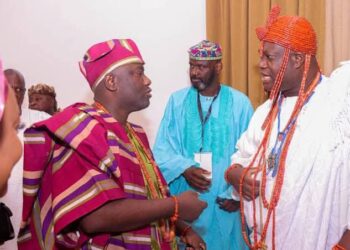
By Ibrahim Kegbegbe
The Nigerian entertainment industry is no longer a local affair; it is a global stage where Nollywood and Afrobeats perform side by side, each shaping the cultural imagination of Africa and beyond. This reality was once again underlined on August 23, 2025, when Nollywood star Kemi Ariyo—popularly known as Aunty Sidi—was photographed alongside Promising Afrobeat Star, Harcher, at the Barrystar Homecoming Concert in Ikorodu, Lagos.
For fans of Yoruba cinema, Aunty Sidi’s name resonates with consistency and humility. Much like Hollywood’s Viola Davis, who has earned global admiration for her down-to-earth nature despite her unmatched talent, Aunty Sidi embodies the truth that lasting stardom is not merely about fame but grace, accessibility, and the ability to uplift others. She remains approachable to colleagues and fans alike, a rare trait in an industry often fueled by ego.
Sharing the frame with her that night was Abdul Rahman Yusuf, better known as Harcher, the fast-rising Bullion Records artist. His story mirrors the early journeys of today’s Afrobeats giants. Just as Burna Boy’s voice once travelled from Port Harcourt to international stages and Wizkid’s melodies from Surulere to Madison Square Garden, Harcher’s music is already making its way into homes and clubs across Europe and the United Kingdom. His debut EP, The Great Arrival, lives up to its name, positioning him as a formidable new entrant whose sound is both refreshing and global in appeal.
READ ALSO:Harcher Thrills Fans at Billyque & Friends Show in Lagos
This meeting of Nollywood and Afrobeats represents something larger: the fusion of Nigeria’s two most powerful cultural exports. Nollywood, the second-largest film industry in the world, has become to Africa what Bollywood is to India—a powerhouse of storytelling. Meanwhile, Afrobeats is Nigeria’s equivalent of reggae’s Jamaican revolution or hip-hop’s Bronx beginnings, a genre that has leapt from the streets of Lagos to dominate global charts. In this fusion, figures like Aunty Sidi and Harcher remind us of how past, present, and future converge in the Nigerian entertainment narrative.
The symbolism is profound. Aunty Sidi, like Meryl Streep who has sustained relevance across generations in Hollywood, represents seasoned artistry grounded in humility. Harcher, like a young Drake making his mark in global rap, symbolises the daring audacity of a new wave. When they met in Ikorodu, it was not just a casual photograph—it was an artistic handover of sorts, bridging experience and innovation.
READ ALSO:Wike’s Aide Dismisses PDP’s 2027 Zoning Move as “Too Late”
Globally, the Nigerian entertainment industry stands at a tipping point. Hollywood actors now appear in Nollywood collaborations; Afrobeats songs are headlined at Coachella, Glastonbury, and the Grammys. As Netflix invests heavily in Nollywood productions and Afrobeats continues to top Billboard charts, Nigerian stars are no longer “emerging”—they are setting global standards.
READ ALSO:Mystery Surrounds Arrest of Palestinian Leader in Abuja
The lesson from that August night in Lagos is clear: humility and talent remain the most universal currencies in the arts. Just as Beyoncé once said that staying grounded is the secret to longevity, Aunty Sidi demonstrates humility cements stardom, while Harcher proves that a unique voice can travel beyond borders when powered by determination. Together, they remind us that Nigeria’s cultural exports are not only alive but thriving—and their brightest moments come when generations stand side by side.
















